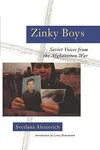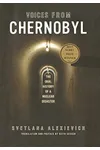Picture a Belarusian storyteller who turned the voices of ordinary people into haunting symphonies of history—meet Svetlana Alexievich! Born in 1948, she’s the Nobel Prize-winning author who pioneered 'documentary literature,' weaving oral histories into powerful narratives. Her works, like Zinky Boys and Secondhand Time, capture the raw emotions of Soviet and post-Soviet life, giving voice to those silenced by official narratives.
With a journalist’s curiosity and a poet’s heart, Alexievich doesn’t just write history—she feels it. Her books are like eavesdropping on a nation’s soul, revealing the courage and suffering of everyday people caught in war, disaster, and upheaval. Ready to dive into her world?
The Making of Svetlana Alexievich
Svetlana Alexievich was born on May 31, 1948, in Ivano-Frankivsk, Ukraine, to a Belarusian father and Ukrainian mother, both teachers. Raised in Belarus, she grew up surrounded by stories of World War II’s scars, which shaped her fascination with human experiences. After studying journalism at the University of Minsk, she worked as a reporter, honing her knack for listening. Influenced by Belarusian writer Ales Adamovich, who championed witness testimonies over fiction, Alexievich found her calling: to let real voices tell history’s untold stories.
Svetlana Alexievich’s Unforgettable Stories
Alexievich’s books are not traditional histories—they’re emotional tapestries woven from hundreds of interviews. Her signature style, often called 'novels in voices,' blends journalism with literary art, creating a polyphonic chorus of human truths. Her first major work, The Unwomanly Face of War (1985), shares the stories of Soviet women who fought in World War II, revealing their bravery and heartbreak. Zinky Boys (1990) exposes the Soviet-Afghan War’s toll through the voices of soldiers and grieving families, challenging heroic myths with raw honesty.
Voices from Chernobyl (1997) chronicles the 1986 nuclear disaster’s human cost, from peasants to scientists, earning her global acclaim. Her magnum opus, Secondhand Time (2013), captures the Soviet Union’s collapse and its chaotic aftermath, painting a portrait of a lost era. Alexievich’s works don’t just document events—they preserve the feelings of those who lived them, making history deeply personal.
Her meticulous process involves years of interviews, heavy editing, and a commitment to emotional authenticity. By focusing on 'the history of the soul,' as she calls it, Alexievich crafts narratives that resonate universally, even as they challenge authoritarian regimes in Belarus and Russia.
Why Svetlana Alexievich Matters
Svetlana Alexievich’s impact is monumental. As the first Belarusian and journalist to win the 2015 Nobel Prize in Literature, she redefined what literature could be. Her 'polyphonic writings' amplify marginalized voices, offering a counter-narrative to state-controlled histories. Her books, translated into over 45 languages, have inspired readers and writers to value oral history as a tool for truth. Despite censorship and exile under Belarus’ Lukashenko regime, Alexievich’s courage mirrors the resilience of her subjects.
Her work continues to shape how we understand trauma, memory, and resilience, making her a beacon for those who believe stories can change the world. From classrooms to bookstores, her legacy thrives as a testament to the power of listening.
- Born: May 31, 1948, in Ivano-Frankivsk, Ukraine
- Key Works: The Unwomanly Face of War, Zinky Boys, Voices from Chernobyl, Secondhand Time
- Awards: 2015 Nobel Prize in Literature, National Book Critics Circle Award (2005)
- Fun Fact: She spent over 40 years interviewing thousands to craft her books!
About Svetlana Alexievich
Snag Voices from Chernobyl or Secondhand Time and dive into Svetlana Alexievich’s soul-stirring documentary literature!







